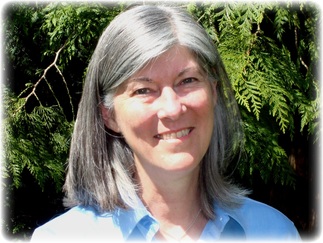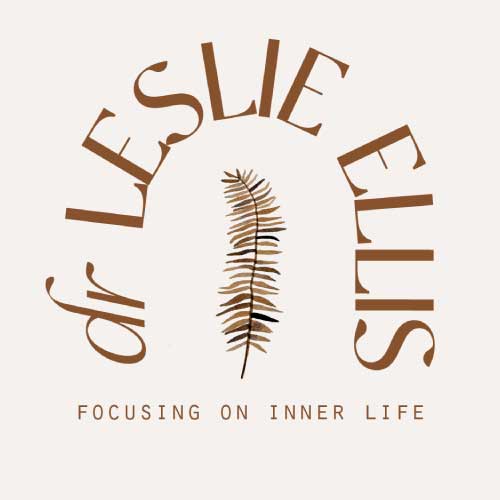'Experiential Dreamwork Brings Wonder and Surprise into the Therapy Process’
If you are interested in attending my year-long Embodied Experiential Dreamwork Certification program. You might be interested in the experience of a recent graduate.

Donna Steadman, MA, RCC, FOT
A psychotherapist, focusing teacher and graduate of the Embodied Experiential Dreamwork Program.
www.donnasteadman.com
donna@donnasteadman.com
604-655-1118
Leslie: What was your experience of the yearlong dreamwork program? I’m curious if it changed how you work with dreams in your practice?
Donna: Absolutely. I didn’t really work with dreams before except to follow a dream in a focusing way. But I now have more guidance in how to deepen the process, how to use the dream itself.
Also, working with dreams often makes it a lot easier for me to connect with a client in an embodied experiential (focusing) way. Dream sessions have that wonderful, surprising quality to them, so my clients are not going to finish the session just knowing what they already knew.
Leslie: So you’re saying the dreamwork brings something new, some novelty?
Donna: Yes. It opens up to the unknown, and that makes so much difference. As we know, if they just keep saying what they already know, they just keep doing what they have always done. And they can feel very trapped, and stuck… working with dreams has become a valuable resource for opening things up for them.
Leslie: Yeah, that old ‘definition of insanity’ – doing the same old things and expecting a different outcome. I remember hearing you say something about how the dream course opened your eyes to dreams in a new way. It’s not that you were closed-minded about it, I just get the impression it changed how you view dreams in general.
Donna: I didn’t recognize the value and the depth, and the sort of the path that dreams can lead you down. It’s like there’s been all these doors, but I didn’t recognize them as openings. So I thought they were just walls.
Leslie: That’s a good metaphor.
Do you find in your practice, that you’re working with dreams more or differently?
Donna: I am working with dreams more, and I feel that I’m just scratching the surface. Similar to the focusing training, it got me to a certain point of awareness and gave me the tools, but I need to do a lot of review, and I need to rewatch a lot of your videos. It’s just a matter of time. That’s one of the things I really liked about your program was that you provide all of that – recordings, video, and your book. I can go back and continue to learn and reinforce what you’ve taught us.
Overall, the course was beautiful. I think the length of time it ran was a good length to cover all the material. It was broken up into really useful ways. And it’s really accessible. It makes sense.
Leslie: That is my mission, actually, because I feel like too many clinicians are a little intimidated by dreamwork and I want to make it accessible so my students can really feel how useful dreams are clinically. If you were speaking to a therapist considering taking this dream course, what would you tell them about it?
Donna: That it’s really very valuable, in different ways. Dreamwork with focusing expands it, it gives you more choice and more tools for clients that are not so comfortable with turning inside. There are those who are not comfortable in their bodies, for instance, and they don’t want to tune into the body… But they’re kind of curious about their dreams, and talking about these can be an easier way to begin exploring inside.
The actual way of working is so complementary, which is another thing I love about your workshop. If I took a different course in dream work, they wouldn’t likely be connecting it in any way to focusing. Whereas pairing the two together is what makes it. If you’re going to be working with the body as a focuser, then it would be cutting yourself short to not be doing the dream work as well.
Leslie: I agree of course. I’ve just found dreams to be so deepening and enriching in the therapy process. I couldn’t imagine not having that avenue. Not everybody brings dreams, obviously. But if they do and you don’t have the facility, then it just feels like such a missed opportunity to me.
Donna: Yeah, I agree, It would be. And from the one-day workshops on dreams, I had a little bit of an idea what to do, enough to at least pause and value the dream, but not to work with it as deeply as the program has enabled me to do.
I also want to emphasize the value of the partnerships, the demos and the practice. The whole experiential piece, that’s how I learn. I start to glaze over if people just talk at me. So to get the chance to see it, and then experience leading or being led is so helpful to my learning.
And the other thing that really facilitates the learning is your attitude, that sort of informal welcoming ease… nothing’s criticized, nothing’s pressured. It’s wonderful.
Leslie: Well, thank you. I think that’s also your lovely way of being with people. (Donna offers an online community for therapist wanting to learn focusing-oriented therapy.) I’m really glad you’re offering a focusing training community. I refer so many people to you when they ask about focusing, and it really makes me happy to know that you are making it available.
So I don’t want to take up any more of your time. Before we end our conversation, is there anything else that you want to say about the dream program and what you have learned?
Donna: I’d like to add how eye opening it is, to see working with dreams in a way that is very specific to each individual’s experience of their own dream. When I used to think of working with dreams, there was always this sense of prescribed symbolism. But the way you taught us is so not prescribed. It’s a process of discovering, which gives each dream the power to be what it truly is for the client, rather than anything imposed from the outside.
Leslie: Yeah, there’s no set formula for interpreting dreams experientially. I think it’s true that dreaming is so personal. And if you try to add a layer of interpretation, the client will be told what their dream means as opposed to discovering for themselves. In my world, it’s not even ethical to impose a meaning on another’s dream.
Donna: I also like that when you’re working with them, you often start with the question, ‘What do you take from this dream? What are your ideas?’ And that really gets it out of the way, because that’s where we go first. Right? This is how I feel about my mother and what she said yesterday… so we get all that. Okay. I think it’s helpful to include it, but then we can move on to the discovery of more. That’s the part I love — the surprise and wonder when the dreamer says, ‘Oh, my gosh, I would never have guessed that this dream meant all of that!’
Donna offers a focusing certification program for mental health professionals. This program takes place on select Saturdays, both online and (once Covid permits) at her home in East Langley – the specific dates are determined by the group, up to 6 months in advance.
According to Donna, “this training uses a continuous intake format, with multiple passes of each module. Because Focusing is not technique-driven, I have found the repetition to be incredibly helpful; it’s all about developing a ‘feel’ for the work, learning how to match the client’s process, and learning how to speak the language of the body.”
For more details, click here.
